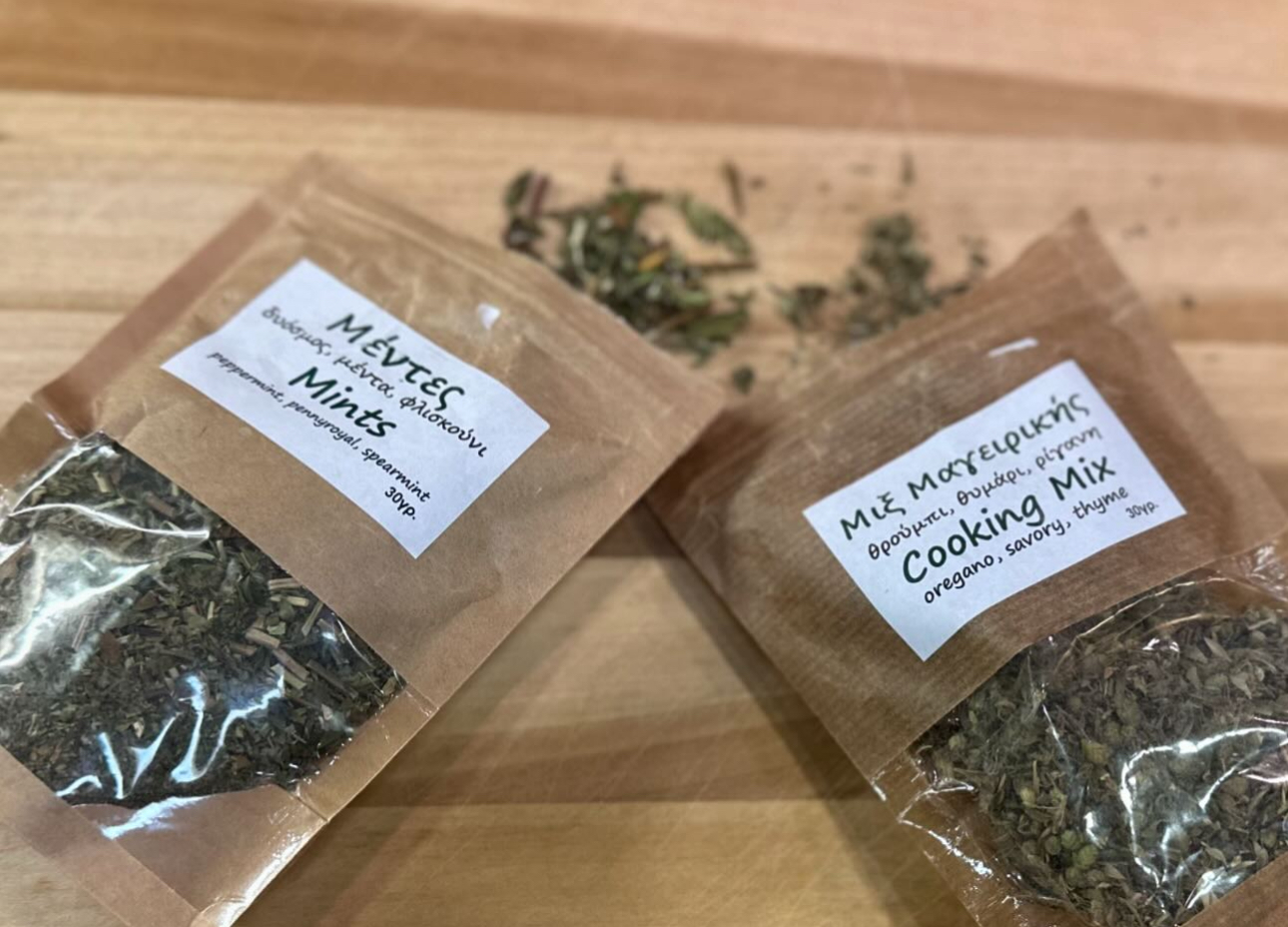The Link Between Longevity, Optimal Health & Herbs
What’s the link between longevity, optimal health & herbs 🌿 in numerous blue zones (where people live the longest and with low incidents of illness & disease) you will often find a link between herbs and daily use. Many have herb gardens and start and end their day with fresh picked herbal tea. Additionally organic herbs are used to season foods during cooking but also on top of salads.
We all know that green leafy vegetables are vitamin and nutrient rich, but fresh herbs contain large amounts of vitamins such as A, C and K. Additionally, many herbs also contain polyphenols. Polyphenols are plant compounds that have both antioxidant and anti-inflammatory capabilities. So adding herbs to your daily diet have significant health benefits as well as act preventatively!
Here are a few of the herbs that are specific to the mediterranean diet:
- 🌿 spearmint
- 🌿 peppermint
- 🌿 pennyroyal
- 🌿 oregano
- 🌿 savory
- 🌿 thyme
- 🌿 basil
- 🌿 cistus/rock rose
- 🌿 lavender
- 🌿 chamomile
- 🌿 sage
- 🌿 dandelion
- 🌿 rosemary
Here is a breakdown of each herb’s health and medicinal benefits. These are just a few or a summary of the benefits so I encourage you to research more:
🌿 spearmint – may help balance hormones, lower blood sugar and improve digestion, and can also reduce stress and improve memory
🌿 peppermint – antibacterial, antifungal, and antiviral properties. Menthol and methyl salicylate, the main ingredients in peppermint, have antispasmodic effects, with calming effects on the gastrointestinal tract.
🌿 pennyroyal – alleviate menstrual symptoms, and to treat inflammatory conditions, chronic bronchitis, and minor ailments.
🌿 oregano – anti-inflammatory, antioxidant, and antimicrobial properties. Potential medical uses range from diabetes to cramps. It may also help reduce the risk of cancer.
🌿 savory – good for coughs, sore throat, and intestinal disorders including cramps, indigestion, gas, diarrhea, decrease muscle spasms, kill bacteria and fungus, help nausea, and loss of appetite. People with diabetes take it to relieve frequent thirst.
🌿 thyme – anti-inflammatory, antimicrobial, and antiseptic properties, boosts the immune system and prevent colds, flus, and other illnesses and can improve the function of your immune system. Thyme is packed with vitamins and other nutrients, including Vitamin C, Vitamin A, Vitamin B-6, iron, calcium, magnesium, and manganese. thyme also helps to detoxify the body.
🌿 basil – is rich in antioxidants and contains nutrients and compounds that can help stave off chronic diseases, including cancer, diabetes, heart disease and arthritis, lowers blood pressure, can help lower your cholesterol and triglycerides, rich in magnesium, which can help improve your blood flow by allowing your muscles and blood vessels to relax, reduces inflammation, supports liver function and helps detoxify the body. It’s a good source of vitamin k and strengthens bones. Basil has been proven through studies to improve heart health, blood sugar, boost immune system and even increase thinking and reasoning ability (neurocognition).
🌿 cistus/rock rose – a strong antioxidant, captures and remove free radicals, has a rejuvenating, anti-inflammatory and vitalizing effect on human body. Flushes toxins and heavy metals, known to slow down the aging process. Strengthens the immune system, acts as firewall against diseases. People also use it for panic, stress, and anxiety.
🌿 lavender – known to be rich in medicinal properties like antimicrobial activity, it also has anxiolytic, anti-inflammatory, antinociceptive, and antioxidant properties. It is also often used for insomnia, alopecia (hair loss), anxiety, stress, and postoperative pain.
🌿 chamomile – commonly used for hay fever, inflammation, muscle spasms, menstrual disorders, insomnia, ulcers, wounds, gastrointestinal disorders, rheumatic pain, and hemorrhoids. Very beneficial for aiding in relaxation and falling asleep.
🌿 sage – boosts memory, might help with chemical imbalances in the brain that cause problems with memory and thinking skills, eases menopausal hot flashes and night sweats, fights inflammation, improves blood sugar control, lowers cholesterol levels, known to be preventative for cancers, and promotes skin healing. Additionally used for easing sore throats, digestive problems, including loss of appetite, gas (flatulence), stomach pain (gastritis), diarrhea, bloating, and heartburn. It is also used for reducing overproduction of perspiration and saliva, and for depression, memory loss, and Alzheimer’s disease.
🌿 dandelion – has antioxidant properties, improve the immune system, stimulate the appetite and help digestion, detoxify the liver and gallbladder, and helps kidney function. Also contains beta-carotene, which is an antioxidant that helps protect cells from damage. Research shows that carotenoids such as beta-carotene play a vital role in reducing cell damage. The flower of the dandelion is also full of flavonoids and polyphenols, which are other types of antioxidants.
🌿 rosemary – significant antimicrobial, anti-inflammatory, antioxidant, anti-apoptotic, anti-tumorigenic, antinociceptive, and neuroprotective properties. It is known to boost memory and brain health and has positive effects on mood, learning, memory, pain, anxiety, and sleep. In Ikaria, Greece, the grandmothers would tell their children and grandchildren to tuck a fresh sprig behind their ear and wear it throughout the day. I have a rosemary plant on my bedside table.

